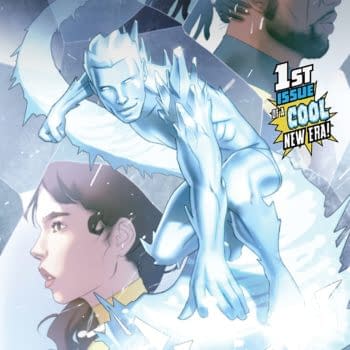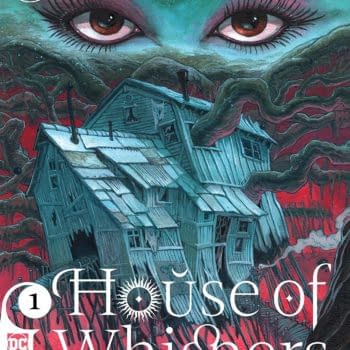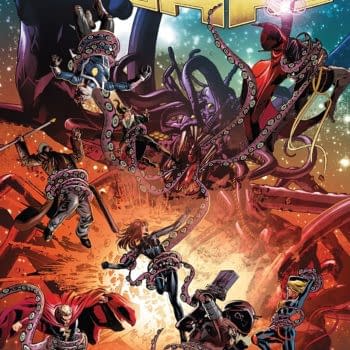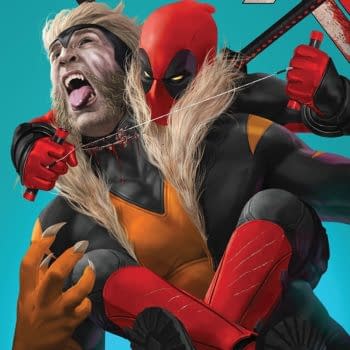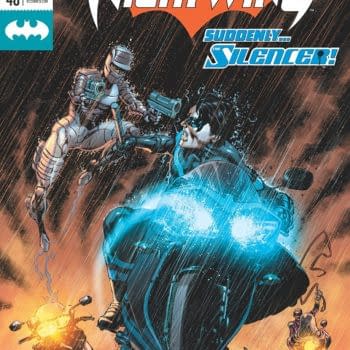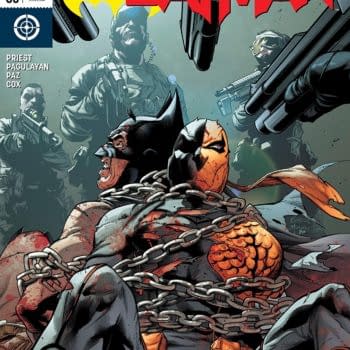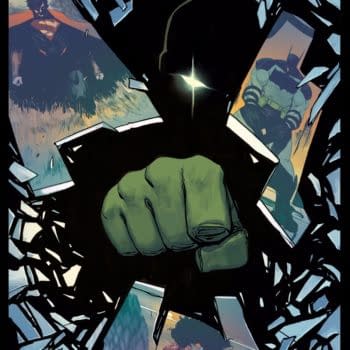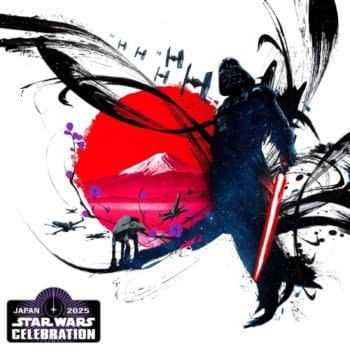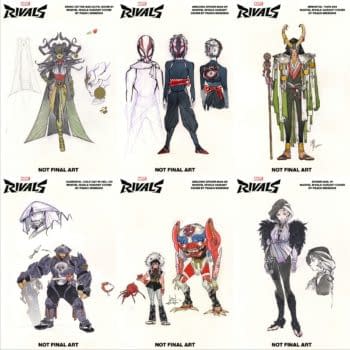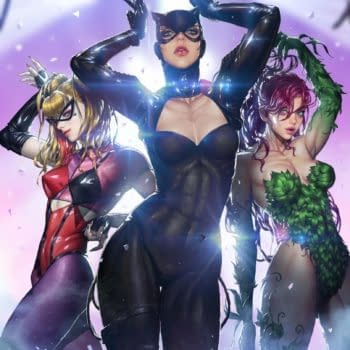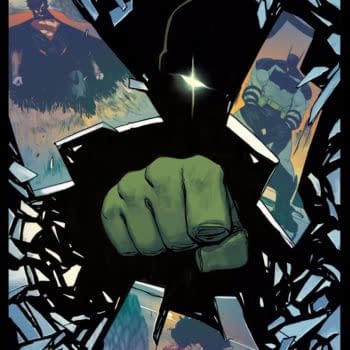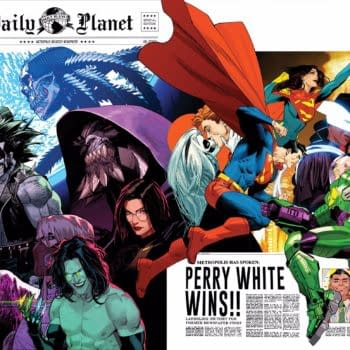Posted in: Comics, Marvel Comics | Tagged: black panther, black panther and the crew, butch guice, HRL, hydra, luke cage, Mack Chater, Manifold, Marvel Comics, Misty Knight, Stephen Thompson, storm, Ta-Nehisi Coates
Black Panther And The Crew #5 Review: Manifold Takes The Stage
We are given a look at how Ezra's Crusaders fell apart as the mutant Avenger Manifold arrives in Harlem to challenge the Americops. He has connections with Ezra, too, and Ezra convinced him to make a home in Harlem in between his running from place to place. Manifold is met by Black Panther, Luke Cage, Misty Knight, and Storm as the five decide what to do about the Americops and the Hydra incursion into Harlem.
There are a lot of things revealed in this comic that have a lot of implications for the story itself and its relation to the real world.
As such, I'm going to go over the broad strokes before I start going in over my head in discussion about race, institutional racism, and criminal acts done in the name of revolution. Oh boy.
So, broad strokes: this comic works very well. It's cool seeing Manifold show up and kick some robot ass as he assaults the Americop gestapo-bots. His motivations are sound, and it's nice getting more in-depth into the character of Manifold after his exploits in Jonathan Hickman's Avengers and Avengers World.
Butch Guice's artwork, as always, is great. He rocked in Captain America, and he rocks here too. The color work of Dan Brown and Paul Mounts is very atmospheric and heavy. The flashback work of Mack Chater and Stephen Thompson compliments Guice's artwork very well, and the styles do not feel incongruous at all.
As always, I recommend this comic and will continue to bang my drum about how Marvel should not have cancelled Black Panther and the Crew after two issues and minimal sales figures to speculate upon.
Anyway, spoiler time. Ezra's Crusaders fell apart because the rest of the team took an interest in robbing banks and armored cars. They justify it as still fighting imperialism, just in a different way. Ezra could not abide by that, and he is expelled from the team with a threat that, if he interferes, they will come after him.
Furthermore, we figure out that Ezra's team was secretly funded by Hydra, which raises all kinds of questions, the implications of which I'm not sure can entirely elaborate upon.
The implication here is that even rebellion can benefit the powers that be. It also draws a line in the sand between genuine activism and self-serving criminality with Ezra representing the former and his teammates representing the latter.
Having literal-Nazi Hydra represent the powers that be which want a rebellion obviously throws a lot of shade at the U.S. government and businesses. Of course, this comparison is not without reason, see also the War on Drugs, the dealings with South American drug lords which resulted in a lot of cocaine being brought into the U.S, and how the FBI treated the Black Panthers in the 1960s.
It also shows how good people can be used by evil men. It makes all of this feel a lot more real and depressing. Ezra Keith was a good man, and he was brought low by his own allies and the people that backed them.
This discussion has probably been a lot more unfocused than I intended.
I guess my point is, as always Ta-Nehisi Coates's Black Panther and the Crew remains a thought-provoking comic giving a measured discussion to real-world problems, and I continue to recommend it. If you haven't hopped on by this point, buying the trade is a more prudent option. There is only one issue left before this story ends. I look forward to seeing how it wills stick the landing.




